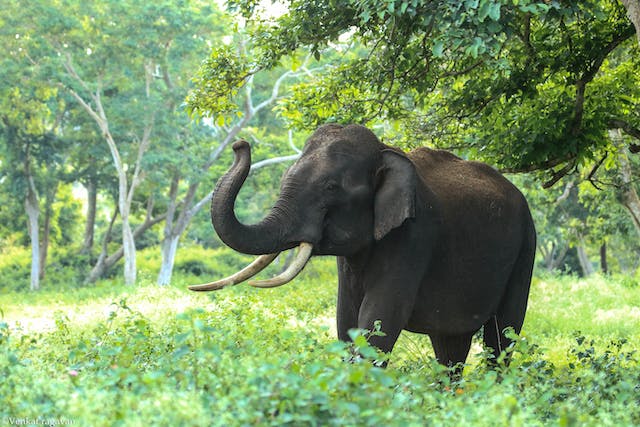In the vast tapestry of Earth’s ecosystems, few creatures command as much awe and reverence as the majestic elephant. Beyond their colossal size and iconic appearance, elephants play a pivotal role in maintaining the delicate balance of their habitats. Join me on a journey as we unravel the intricate web of connections that make these gentle giants true architects of biodiversity.
Page Contents
The Keystone Architects
Elephants, particularly African and Asian species, are often referred to as “keystone species.” Just as the keystone in an arch holds everything together, these magnificent creatures have a profound impact on their surroundings. One of their primary roles lies in shaping landscapes.
Gardening Architects:
Elephants are nature’s gardeners. With their voracious appetites, they shape the vegetation around them, creating open spaces and influencing the type of plants that thrive. By uprooting trees and chomping on shrubs, they maintain the balance between different plant species, preventing any one type from dominating the landscape.
Read Also : Shocking Power: The Electric Eel’s Electrifying Abilities
Water Engineers:
Elephants are also crucial in maintaining water holes. Their large feet and powerful trunks help dig holes that collect rainwater, providing a source of hydration for numerous other species during dry seasons. In this way, elephants literally quench the thirst of the entire ecosystem.

Biodiversity Custodians
Elephants are not only landscape architects but also custodians of biodiversity. Their actions create niches for a multitude of other species to thrive.
Creating Habitat Diversity:
As elephants modify the vegetation, they simultaneously create a diverse array of habitats. From open grasslands to densely vegetated areas, these changes cater to the varying needs of different animal species, promoting biodiversity and ensuring that no single species dominates the ecosystem.
Seed Dispersers:
Elephants are unwitting gardeners, dispersing seeds across vast distances. The seeds of many plant species can only germinate after passing through an elephant’s digestive system. This unique process helps plants colonize new areas and ensures genetic diversity, making the ecosystem more resilient to environmental changes.
Guardians of the Forest
Elephants play a crucial role in maintaining the health of forests, which are often referred to as the lungs of the Earth. Their influence extends beyond simply shaping the landscape.
Fire Prevention:
Elephants unintentionally contribute to fire prevention. By creating open spaces and reducing the density of vegetation, they act as a natural firebreak. This is particularly important in regions where wildfires are prevalent, as it helps safeguard both flora and fauna.
Carbon Sequestration:
Forests are vital in capturing and storing carbon dioxide, a major contributor to climate change. Elephants, by promoting the health and diversity of forests, indirectly contribute to carbon sequestration. The more diverse and healthy the forest, the more resilient it is to disturbances, including those caused by climate change.
Read Also : Unveiling the Enigmatic World of Bat Navigation in the Dark
The Social Architects
Beyond their ecological impact, elephants are also social architects. Their intricate social structures and behaviors contribute to the overall well-being of their populations.
Family Ties:
Elephants live in close-knit family groups led by a matriarch. These family units are essential for the survival and learning of the younger members. The matriarch’s knowledge of migration routes, water sources, and feeding grounds is passed down through generations, ensuring the group’s long-term survival.
Emotional Intelligence:
Elephants are renowned for their emotional intelligence. They mourn their dead, display empathy, and exhibit a wide range of emotions. This emotional depth contributes to the cohesion of their social groups and fosters a sense of community within the elephant population.
Conclusion: A Symphony of Life
In the grand symphony of life, elephants are the conductors orchestrating the harmonious existence of countless species. From shaping landscapes and promoting biodiversity to guarding against wildfires and contributing to carbon sequestration, these gentle giants are indispensable to the health of the ecosystems they inhabit.
As human activities increasingly encroach upon their habitats, it is crucial for us to recognize the significance of elephants in maintaining the delicate balance of nature. Conservation efforts must not only focus on protecting these magnificent creatures but also on preserving the habitats that sustain them.
Let us marvel at the awe-inspiring role of elephants in ecosystems and work together to ensure that future generations can continue to witness the majestic presence of these giants in the wild. After all, the survival of elephants is intricately linked to the well-being of the entire tapestry of life on Earth.


